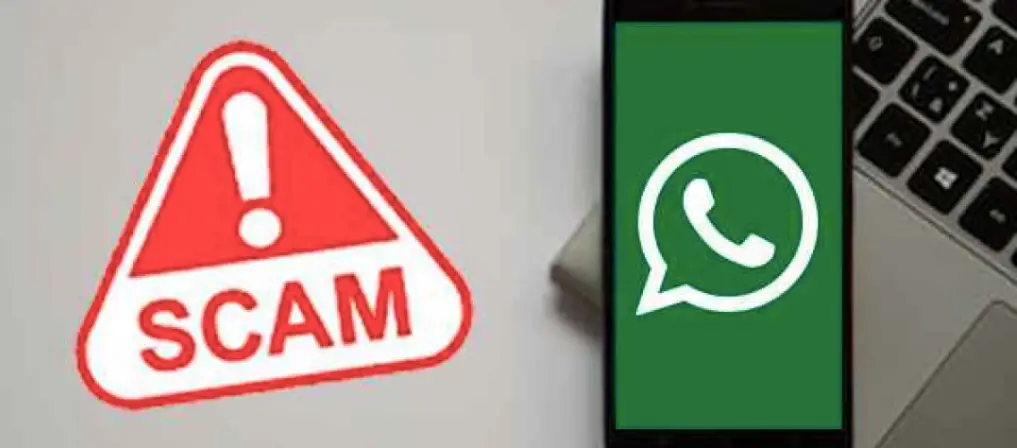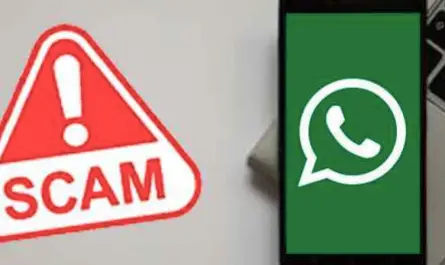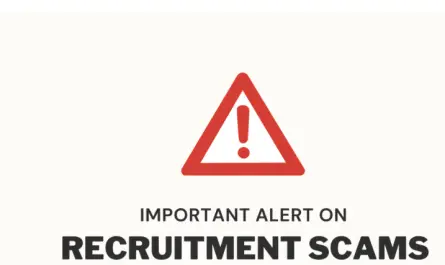Thesalt WhatsApp Scam is one of the latest scam tactics that is making wave over the internet. Did you receive any message on WhatsApp claiming to be from thesalt.co.za? If yes, do not click on any of those links on the message or even try calling the number. It is a huge scam! This review uncovers the fraudulent activities of this scammers and offers tips on how to detect scam texts and avoid them. Read till the end.
Phishing (Email scams) and Smishing (Fraud through Text messages) are on the increase these days. Scammers are now coming up with several ways to defraud people on a daily basis. One of the ways they do this is by sending text messages to people prompting them to release vital information or even gaining access to their information without their knowledge. Receivers of such texts are therefore advised to always carry out due diligence before giving out any information about themselves.
What Is The Thesalt WhatsApp Scam All About?
Thesalt Whatsapp Scam is a text message sent on WhatsApp by fraudsters disguising themselves to be Thesalt, a genuine marketing company that centers on helping businesses grow their brand. The message tells you to either click on a link, call a number or send a mail so that you can be able to enjoy the premium version of their service for free. They also attach a link, phone number or email address with which to provide relevant information about you. Do not fall for it.
How does Thesalt WhatsApp Scam Work?
In order to appear genuine, Cyber criminals employ like those behind the Thesalt WhatsApp Scam employ different strategies. This includes pretending to be Thesalt company and convincing people that to act fast before the offer ends. They make it look so real and urgent so that their victims will click on the link attached in the text immediately without giving it a second thought. Once they click on it, their personal details will be collected by these scammers.

What Are The Effects Of Phishing Scams On The Receivers?
It is so shocking to hear that Thesalt WhatsApp Scam has had several negative effects on people who fell victim of their tricks unknowingly. Some lost their life time savings with just because they clicked on the link. Others even ran into huge debt because they had to start borrowing from friends just to survive since they have lost all their monies. Some other victims were even put in a critical health condition which even ended the lives of some just because they could not bear the shock of losing all they had to these fraudsters.
These and may more stories, prompted us to start educating the public about this fast rising phishing scam known as Thesalt WhatsApp Scam as well as other methods used by scammers these days.
How to Detect A Scam Text Message.
Below are some of the ways you can identify a scam text by fraudsters.
- They make the text sound urgent and give penalty for those who default. This is to make the receiver do what they said.
- They disguise to be a reputable agency, steal the agency’s official logo and address just to convince people.
- They send links to malicious sites to get your personal information and steal from you.
- There are usually errors in their email address or the content of the mail or text.
- Majority of them only make use of text messages and chats.
8 Ways To Avoid Falling Victim To The Thesalt WhatsApp Scam.
In order to be safe from the Thesalt WhatsApp Scam or any other fake agency, follow these instructions:
- Do not click on any link or download attachment from an unknown sender: Do not be in a hurry to click on any link sent in a mail or text message from someone you do not know.
- Make sure your passwords are strong and unique: Do not use one password for all your account. Also, your password should be such that it will be difficult to be hacked. It should consist of a number, an upper case, lower case and special characters.
- Enable two-factor authentication: For extra security, it is safe to always enable two factor authentication on WhatsApp.
- Check the URL of the links they sent: Is there is an error in the URL or even the content of the text message like misspelling or omission, then know it is a scam.
- Carry out your investigation: Before clicking on any link, do a research to know if they are actually it is actually coming from the said organization. This will save you a lot.
- Do not disclose your personal information anyhow: No genuine agency will request that you provide personal information such as bank account details, password information and others immediately.
- Follow your instinct: Whenever you come across a suspicious text message making mouth watery offers, it always safe to pay attention to the details in the message rather than being carried away by their fake promises.
- Report suspicious email or text messages: As soon as you discover a fraudulent text or email, report the number on WhatsApp so that they will take actions to stop further scam activities. Also, delete the message and block the number from sending messages to you.
Conclusion
People should be cautious of the information they give out about themselves. There are many scammers out there targeting unsuspecting people. Sadly, Thesalt WhatsApp Scam is one of the viral scams over the internet targeting WhatsApp users. To stay safe from these fraudsters, you have to adhere to the instructions given above.
If you have already shared your personal or financial information with these scammers, all you just have to do is to shut down your cards, then report the incident. Click Here to see a list of phishing scams to avoid. Other online scams we have reviewed are Mercer Recruitment Scam, Pinnacle Recruitment Scam and ICCU Scam Text



